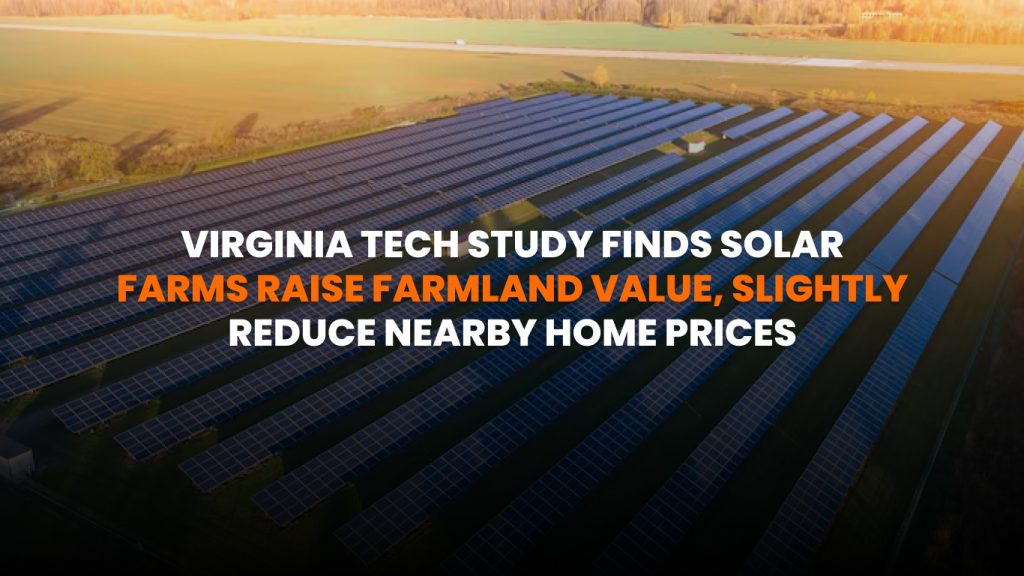As utility-scale solar farms continue to spread across the United States, a new study from Virginia Tech offers fresh insight into how these installations affect surrounding property values—challenging long-held concerns over their economic impact on communities.
According to a report by Virginia Tech, researchers analyzed nearly 9 million property sales near 3,699 large-scale solar sites nationwide. The study, published in the Proceedings of the National Academy of Sciences, found that agricultural and vacant lands within two miles of a solar installation saw a significant 19.4% increase in value—driven largely by rising demand for future solar leasing.
Meanwhile, the impact on residential property values was more nuanced. The study showed an average 4.8% decline in home values within three miles of a solar farm. However, this negative effect decreased with distance, faded over time, and had no measurable impact on properties larger than five acres. Visibility of the solar array from the home also had little to no effect on pricing.
“As the U.S. scales up renewable energy, solar installations are increasingly being sited near homes and on farmland, and this often leads to pushback from residents worried about aesthetics or property value loss,” said lead author Chenyang (Nate) Hu, a Ph.D. graduate in agricultural and applied economics. “Until now, much of this discussion has been based on anecdotal evidence.”
The study used a national model of solar site visibility and a difference-in-differences econometric approach to estimate property value trends before and after solar development. It also uncovered political and regional differences in perception: the slight decrease in residential property values was far less pronounced—or even reversed—in politically left-leaning counties.
Researchers emphasized that the dip in residential values appears to stem more from stigma than any physical or structural harm. Assistant professor Zhenshan Chen, the study’s corresponding author, hopes the findings can lead to better-informed public debate and smarter solar development policies.
“These effects are relatively modest, and we believe this data can help guide community planning, improve siting decisions, and address local concerns more directly,” Chen said.
The authors stress that further research is needed in specific regions, but they see this national study as a foundational step toward balancing the nation’s energy goals with community acceptance.
Source: Virginia Tech
https://news.vt.edu/articles/2025/06/solar-property-value.html

